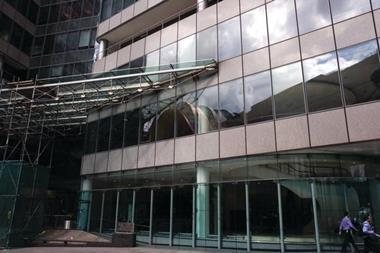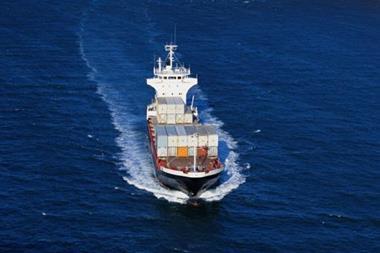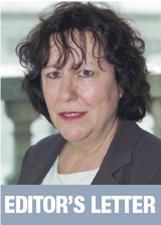An interview with Clive Tobin, chief executive insurance operations, XL Insurance
Sue Copeman interviews Clive Tobin, chief executive insurance operations, XL Insurance
Do you think that clients’ expectations of their insurers are changing?
We are seeing companies becoming increasingly global with the rise of emerging markets. There is an unprecedented pace of change relating particularly to technology and emerging risks. As a result, clients increasingly expect insurers to have both global capabilities and local knowledge. Even smaller companies expect to become global as they grow and are looking for an insurer that will meet their future as well as present needs.
Another result of this fast pace of change is that clients are looking to insurers to develop new products quickly. They expect our industry to be as creative and innovative as other industries in designing new solutions.
Clients are also looking for greater transparency on cost and also contract certainty. In the UK, the big drive for contract certainty spearheaded by the Financial Services Authority has raised expectations.
How do insurers need to adapt to meet these expectations?
Just like their clients, insurers need to be increasingly global in their knowledge so that they can bring both local and global solutions. Development of the BRIC (Brazil, Russia, India, China) economies is driving this at a much faster pace than we’ve seen in the past. Demand is coming from two directions.
First, international companies that have established manufacturing plants in China or India, for example, want insurers to be able to provide cover for these. So we need to develop new products to meet this high demand.
“There is an unprecedented pace of change relating particularly to technology and emerging risks. As a result, clients increasingly expect insurers to have both global capabilities and local knowledge.
Clive Tobin, chief executive insurance operations, XL Insurance
Second, companies established within the emerging markets are looking to trade internationally. So a company that is based, say, in China will be interested in insurance not only within China itself but also for its products when sold in developed economies like the US and Europe.
Also companies trading on the internet are increasingly looking to insurers to cover risks which may be unique to internet trading or may require more traditional solutions. For example, they may want to provide cargo insurance in the way that traditional companies that had fleets would have provided insurance for their customers in the past.
How concerned are clients that their insurers should have a good credit rating?
Concern of clients over credit ratings really depends on the nature of the product. With long tail products such as D&O and casualty, clients tend to demand that their insurer has a very strong rating because there may be a long period of time before claims emerge. They want to be sure that their insurer will still be there if they need them. With short tail products, clients are generally less sensitive about credit ratings although, if their insurer is providing them with very substantial capacity, financial security is clearly of concern.
What are going to be the key issues in the next five years?
Catastrophe events will still be a huge concern for insurers. Already in this decade we have seen unprecedented severity of catastrophe events. So dealing with the aggregation of catastrophe events both natural and ‘man-made’, for example resulting from terrorism, will remain at the forefront. Obviously the currently proposed extension of the US Terrorism Risk Insurance Act for 15 years will help the insurance industry and it’s customers but the programme still requires insurers to carry high deductibles
It’s been estimated that the UK floods in June and July will cost the industry £3bn – and could well exceed this. This is just one of a number of events – 9/11, hurricane Katrina, European floods, the Asian tsunami – that have occurred since 2000. With values increasing rapidly, it is vital that insurers manage their aggregations so risk management becomes even more important.
These events have also resulted in considerable pricing volatility this decade. The industry and most importantly its customers want a period of stability.
“We have been committed to ERM for a long time.
Clive Tobin, chief executive insurance operations, XL Insurance
What does XL see as the emerging risks?
This goes back very much to what I was saying about clients’ expectations. We are seeing the BRIC economies, as well as countries like Kazakhstan which has substantial energy reserves, develop rapidly. There is a demand for insurers to help provide products in the local territories and that means that we need to be very comfortable with the judicial system in those countries. To provide the best service to clients we need to be sure that our contract wording will be understood and upheld in a local court of law.
At the same time we have to try to advise companies in these economies on risks they face when they trade overseas. For example, they need to understand how the North American and European casualty systems work, what liabilities they may face, what impact class actions have, etc, and how they can be protected.
As emerging countries develop their own products, insurers have to make a very detailed assessment of the risk quality of those products and the risks they are going to face in the developed markets. This is made more difficult by the fact that they do not have a long history of reputational performance in those developed countries.
And that brings me on to another emerging risk. Reputational issues are very important for companies now in terms of both their customers and their employees. The internet has given individuals the ability to make public allegations, which may be legitimate or a hoax, that can do huge reputational damage to a company in a very short period of time. Such allegations may come from external sources or from internal staff in terms of their satisfaction with the work place.
And we are seeing an increasingly incidence of employment practices liability suits in the US. This is a trend which I believe will continue to evolve across all parts of Europe as Europe becomes increasingly focused on employment practices.
Can you tell me about XL’s preparations for Solvency II and your enterprise risk management strategies?
We have been committed to ERM for a long time. For example, we have been focused on ICAS with the FSA, here in the UK and ERM has been an important aspect of that. We have also had members of our financial and management teams concentrating on Solvency II and working closely with bodies like the Geneva Association to provide input on our views. The delay from 2010 to 2012 for implementation of Solvency II illustrates the number and complexity of issues that have to be dealt with.
“Reputational issues are very important for companies now in terms of both their customers and their employees.
Clive Tobin, chief executive insurance operations, XL Insurance
We regard Solvency II as being very significant, and not just in terms of its requirements and the implications for companies’ capital allocations. There are also a lot of issues about disclosure. Just as people want increasing transparency on GAAP statements, such as global loss triangles, under Solvency II you will see increasing demand for disclosure around such things as how companies are assessing their risk margins.
This year risk managers voted XL European Business Insurer of the Year in the StrategicRISK European risk management awards. What do you think differentiates your services?
This award means a lot to us as it was voted for by risk managers. Client satisfaction is very important and we want to thank those risk managers for their confidence in XL.
I think a major factor is that we have a large global network as well as very detailed local knowledge. After a major catastrophe event, you see new capital coming into the market very quickly to provide capacity. But the ability to be able to issue policies that our clients know are compliant in 100 countries takes many years of experience and a lot of detailed knowledge. Building that network has been a huge amount of work and we are very proud of that.
There is also our ability to provide the risk engineering services that clients need across the globe to satisfy both local and group risk management, and which require both local control and global coordination.
Our underwriting and claims teams are run by global leaders who can make global decisions and empower the whole network. So the group risk manager or CRO can deal with a global leader at XL and explain their organisation’s philosophy for risk management and thereby ensure that their local managers can deal with our regional managers to implement that philosophy. Brokers and clients want predictability; they want to know that you have a consistent approach around the world.
We also offer a very wide product range. As well as supporting our customers with standard lines of insurance like property/casualty, we can provide specialty products like D&O, environmental, aerospace, marine, fine arts, specie and equine. Our strategy is to offer products which require strong technical underwriting and claims skills where we can supply meaningful capacity and a strong balance sheet. On the service level, we are committed to continuing to extend our engineering and claims services.
We don’t just want to be a big capacity provider. We think our clients require much more and winning this award perhaps proves that.
Sue Copeman is editor, StrategicRISK




















No comments yet